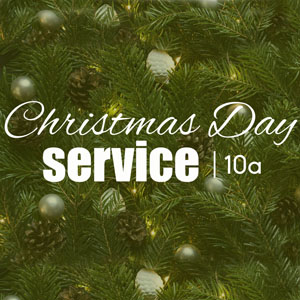
On Sunday, December 25, 2016, we will be gathering together as a church in the same way we do every Sunday. I have had numerous conversations about this both in person and on social media, and so have many others as evidence by the numerous blogs and articles written on it. Here are a few: one written to pastors , one from a local pastor to his congregation walking through how he came to the decision that he did, and a NYT article from 2005, the last time Christmas fell on a Sunday. All of these are helpful, and make most of the points that I would about why we chose to have a service on Christmas Sunday. A few excerpts:
I’m enough of a Puritan to think that December 25 is Sunday before it’s Christmas. It’s the Lord’s Day. It’s a resurrection morning. It’s the day on which Christians have gathered for 2,000 years to sing the Bible, preach the Bible, pray the Bible, and see the Bible in the sacraments. It’s the day of the week given for rest and worship. Why would we cancel church on Sunday just because that Sunday is extra-special? | Kevin DeYoung
What the church does says something about what the church believes. That is an inescapable reality. In the research I did, I found that many secular news outlets noticed that churches “shut down” on Christmas day in favor of people gathering in their homes. Nearly all of these news outlets also commented about the apparent contradiction of “Christians” wanting to keep “Christ in Christmas” on one hand, while canceling worship services on Christmas day on the other. At best, it can send a very confusing signal as to what our priorities and allegiances actually are. | Coram Deo blog
“I think these critics who decry the megachurches should really be aiming their barbs at individual Christians who are willing to stay at home around the Christmas tree instead of coming and giving at least part of that day to the meaning of the holiday,” he said. “They should be facing up to the reality of that.” | NYT article
That is who I am going to address this to; not the pastors who decide whether or not to schedule a service on Christmas Day, but the people who will be deciding whether or not it is worth attending. To start, a few interesting details about this debate.
The first thing I find interesting about this discussion is that it wasn’t really a discussion until 2005. As the NYT article explains, most of the mega-churches who led the movement away from church on Christmas Sunday had services the last time the two came together in 1994 (if they existed as churches at all), but changed their position due to poor attendance. What seems so obvious to some now, was not so obvious a short time ago.
The second thing that is interesting is that this is not a conversation being had around the globe, this is very much an American Evangelical perspective. Most churches internationally have church on Christmas morning whether it falls on a Sunday or not. Church is part of the Christmas tradition if you are a Christian.
The third thing I find interesting about this is that holidays often conflict with Sunday and there isn’t much debate. Easter is on Sunday EVERY YEAR and no feels the need to make time for the family ham; the ham gets scheduled around the resurrection. Likewise, Mother and Father’s day are Sunday holidays that find a way to fit around church. Fourth of July and New Years make time for the saints to gather. Somehow, Christmas has the distinction of being the one day that is important enough to offset the regular rhythm of the church (though Seahawks playoff games are enough for some).
The real issue here is not about what day of the week we should worship, or whether or not traditions are important (both are based on tradition)…it is about what traditions take precedence. Does the gathering of the church on Sunday to celebrate the resurrection of Jesus have enough weight to alter your regularly scheduled Christmas plans? Or does the uniqueness of Christmas morning require church to change its regular scheduled rhythm?
I am not going to try to convince you that Sunday church attendance is a moral imperative that is a measure of your righteousness. Christ is our righteousness; Paul uses the day of celebration as a potential (and incorrect) measuring stick of holiness in his letter to Colossae (Colossians 2:16-17). This doesn’t mean it doesn’t matter at all. Every decision that we make is a declaration of where our values and priorities lie, what is worth sacrificing. So while your salvation is not affected by this decision, your worship is. The liturgy you practice with your life helps to define value and reality for you. As your pastor, I want to encourage you to organize your day around church this Christmas Sunday, not out of guilt or duty, but because celebrating the incarnation with your church family is such a lovely way to prepare your heart for worship (every 5-6 years).